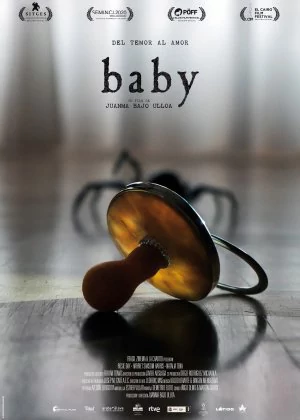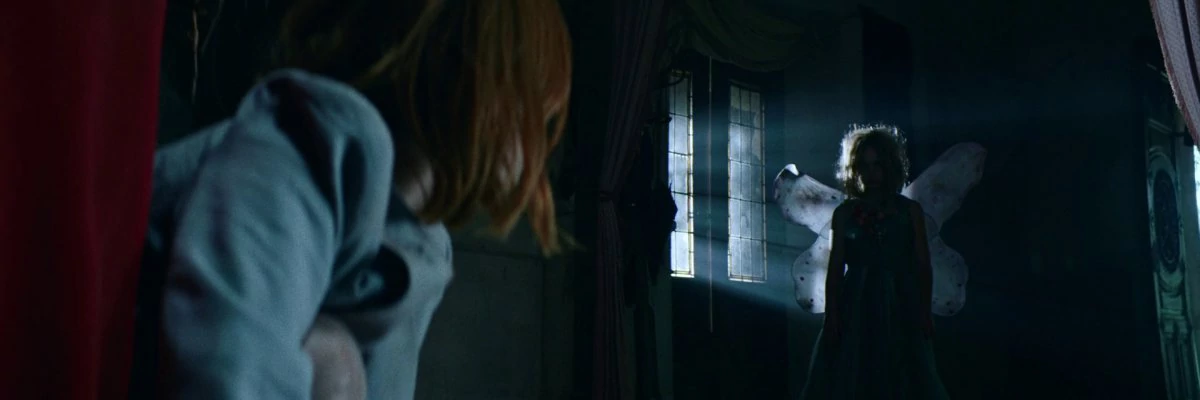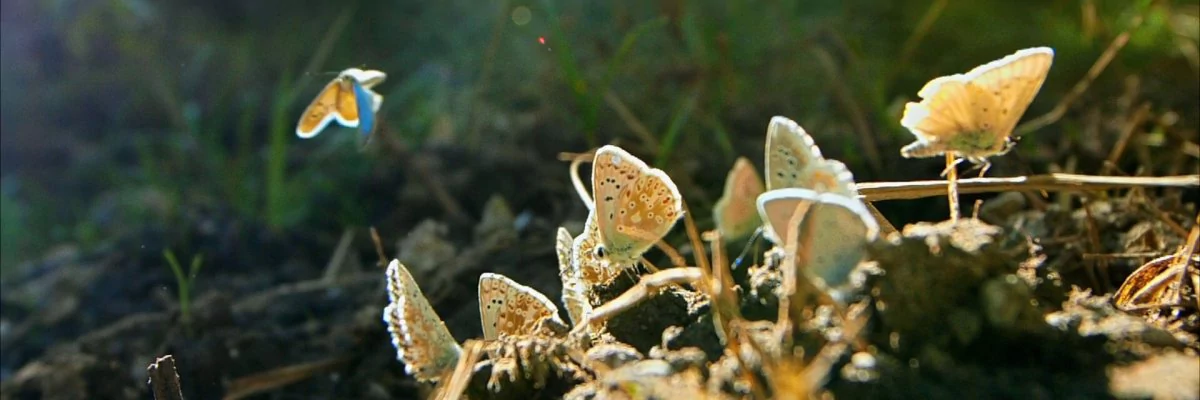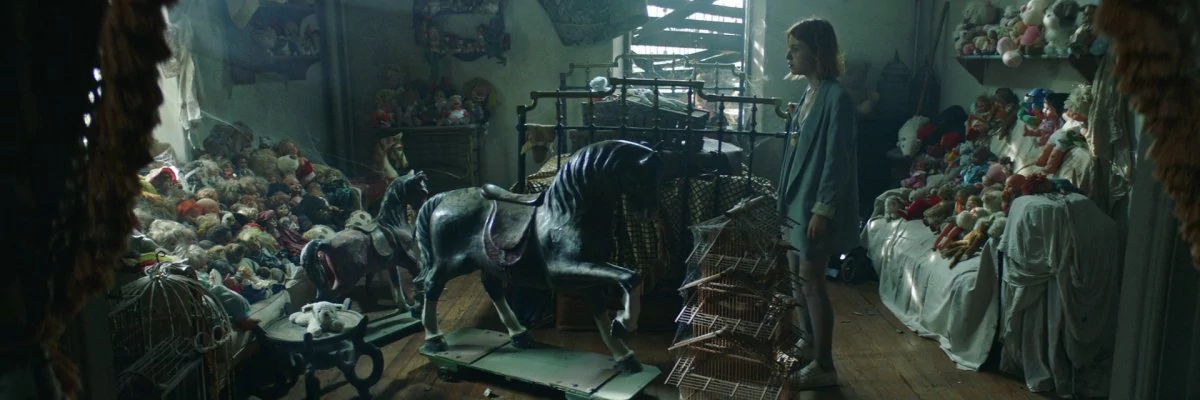Baby

People often say it is hard to make a film that is truly original nowadays. And sure enough, if you only try hard enough, you can always muster up references to some or other existing film. But cut a film some slack, and you'll find many of them offer experiences you won't and can't really get anywhere else. Juanma Bajo Ulloa's Baby is such a film. It would be easy enough to discard it as a slightly different take on the horror genre, or a contemporary fairy tale, but that would be a severe underestimation of the film's qualities. Films like this can be quite divisive and thus struggle to find an audience, so take heed.

Spanish genre films have no qualms shooting with an international cast to up their broader appeal, Ulloa's approach is a little different still. Instead of going for an English-language film, Baby is effectively a modern-day silent. There is no discernible dialogue here, just a camera registering the story. Mind you, this is not a film trying its hardest to be an oldskool silent either. There are no intertitles or other means to narrate the story, apart from the score and the cinematography. As someone who loves a good audiovisual experience and doesn't care too much about plot and dialogue, this is a real boon.
Don't go in expecting a straightforward horror flick. Baby is a mélange of genres, without ever converging on something definitive. It felt primarily like a modern-day fairy tale, only with that oldskool pre-Disney fairy tale grit intact. There sits a clear morality lesson at the core of the film, dressed up as a fantastical modern fable with darker edges that give extra weight to the cautionary finger. Director Ulloa is constantly balancing these different influences in order to keep the film coherent. It's not a glaring success, but any minor hiccups are easily forgiven.
A young woman delivers a baby in her apartment, without the help of anyone else. It turns out she is a drug addict who can't support her addiction, let alone a newborn child. Desperate and hoping to give her child a better life, she sells it to a somewhat peculiar lady, who operates a little business selling babies to wealthy families. On her way home regret overtakes the young mother, and she decides to go back to reclaim her child. The lady lives in a rundown mansion with two children of her own, hoping to keep the money she banked the mother plans to steal her baby back.

When there is no dialogue, a lot of weight rests on the styling to convey emotions and moods. The cinematography plays a central role here, and it must be said that Ulloa delivers in spades. Lush and polished camera work creates a somewhat surreal reality, the sets are detailed and registered with great care and the peculiar animal photography inserted throughout adds some extra flair. Baby is a great-looking film, even when it doesn't always meet its own aspirations. I think Ulloa could've gone a bit further still, but that's just nitpicking.
The score is equally important, certainly for a film that doesn't have the biggest budget to work with. The benchmark for visuals is extremely high, music is often a forgotten stylistic device that can add tons of atmosphere with just the right notes at the right time. Ulloa invested heavily in the score and the result is definitely there. The music can overpower the visuals, and it doesn't always flow naturally between scenes and emotional fluxes, but the core quality is there and there are some hauntingly beautiful pieces that give the film a strong personal signature.
The actors had their work cut out for them, without any dialogue to help them along. They cope perfectly well, though I will say that the meticulous styling alleviates some weight from their shoulders. Rosie Day had the toughest part as the junkie mom, as she takes on a rather unsympathetic character. At the same time, she guides the audience through the story and is tasked with drawing emotional responses from them. Harriet Harris is great as the story's villain, but has it much easier in that regard. Overall, the small cast did well.

We have become so accustomed to dialogue driving the narrative forward, that it will no doubt be a challenge for most to get used to the lack of verbal interaction between characters. For the most part it makes proper narrative sense for characters to be silent or non-communicative, though there are a handful of scenes where it does come off a little forced. It's not a major problem if you buy into the film's stylistic setup, but I can see how this is going to bother some people. I loved Ulloa's approach, so no complaints from me.
From the very first scenes, it's clear Baby is not your average genre film. Ulloa and his team crafted a beautiful, dark and haunting modern fairy tale that plows its way through the narrative without a single word spoken. The stylish cinematography, emotive soundtrack and strong performances kept me involved throughout and solidified the already peculiar experience. It's one of those films that is at risk of fading away into obscurity before it reaches its audience, so if you like something a little different, be sure to give Baby a proper shot when the option presents itself.